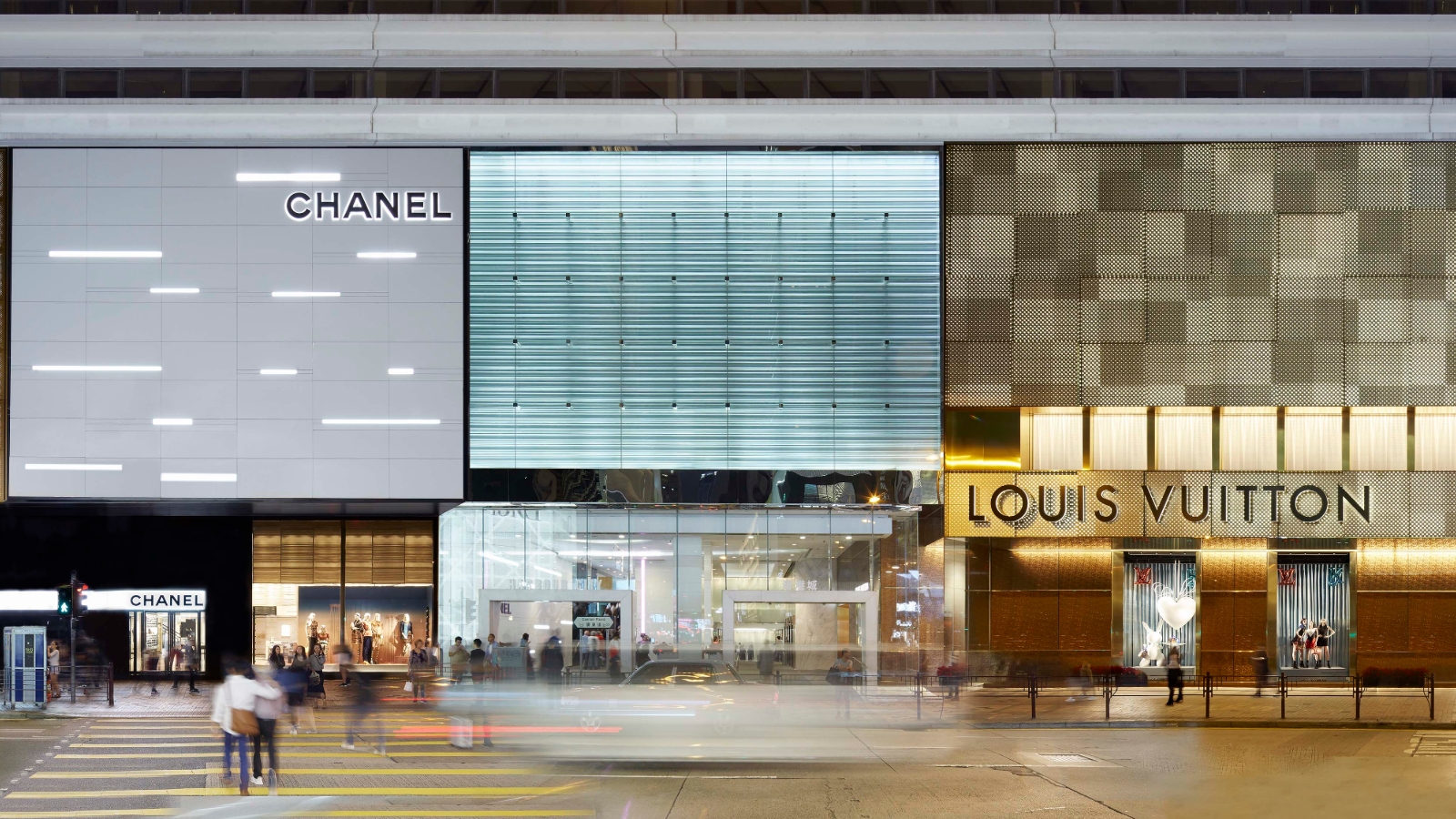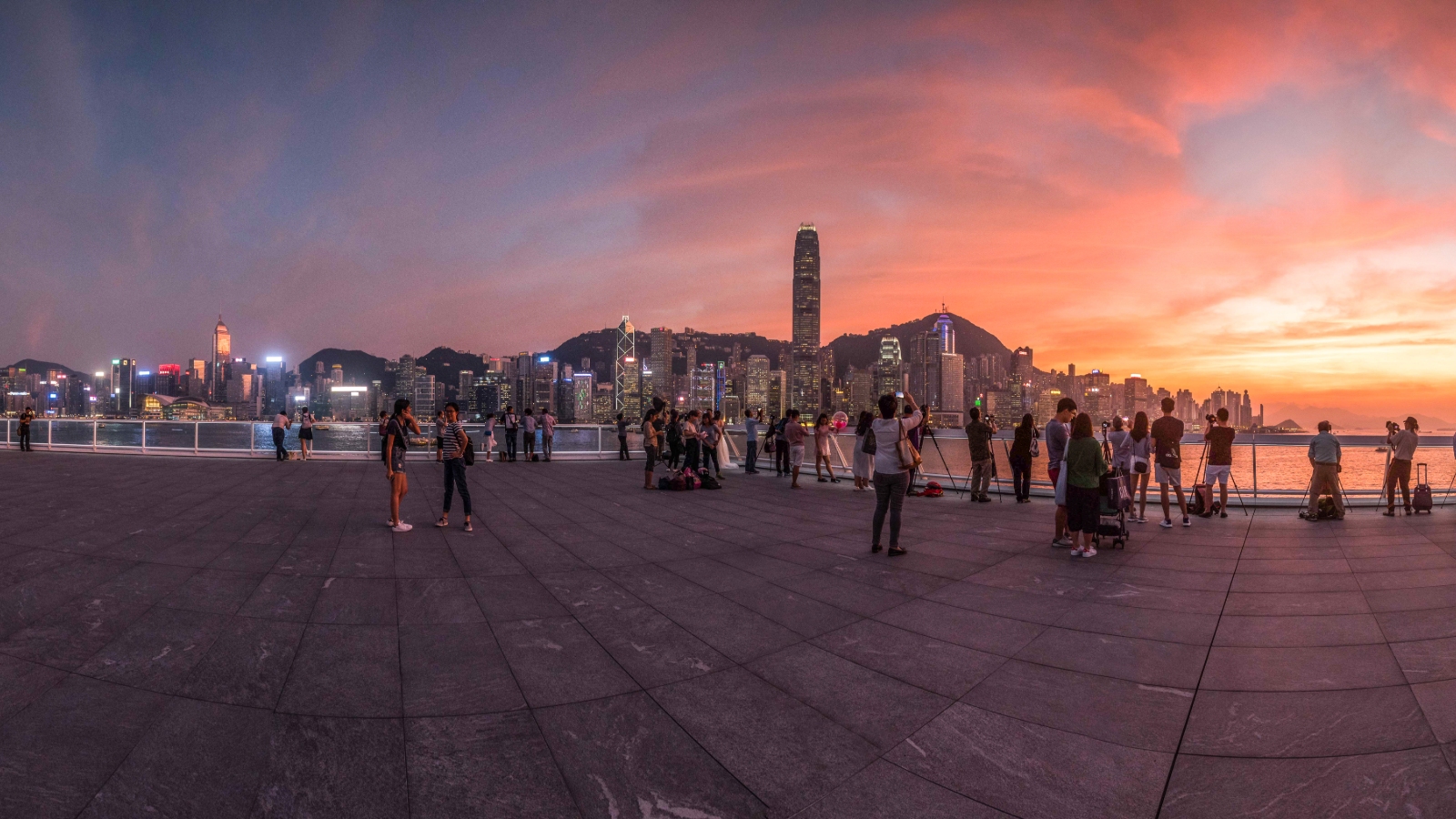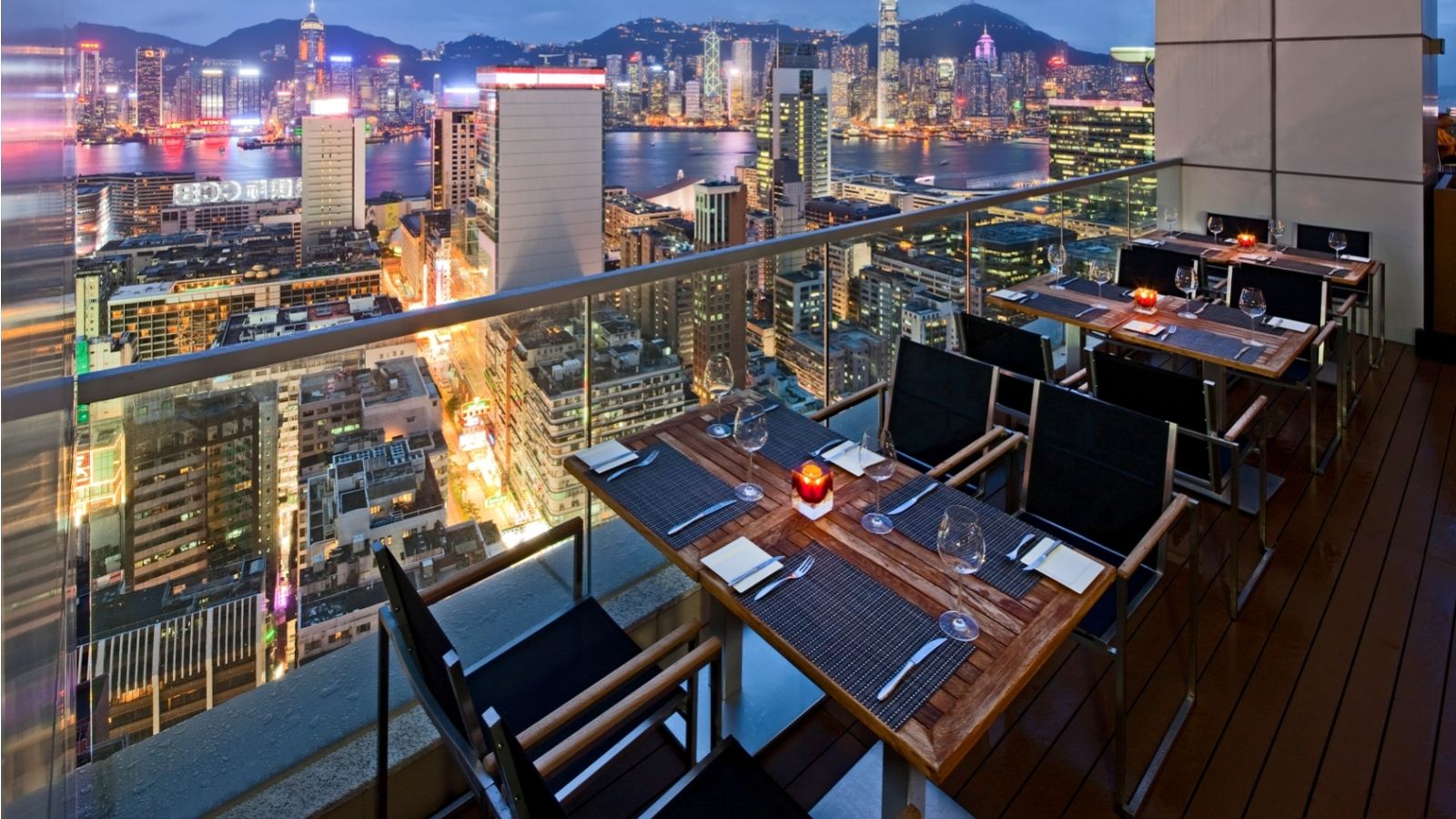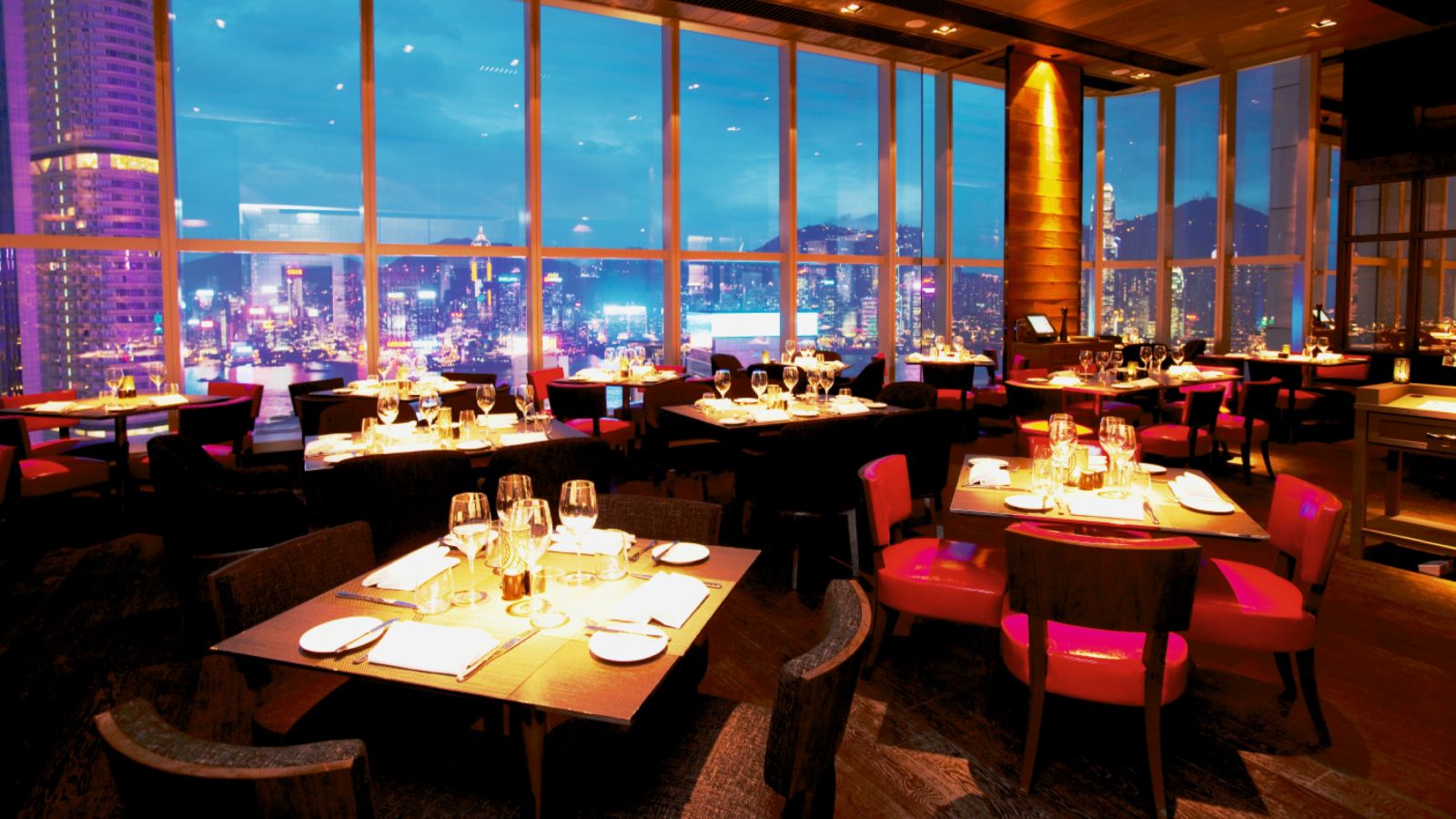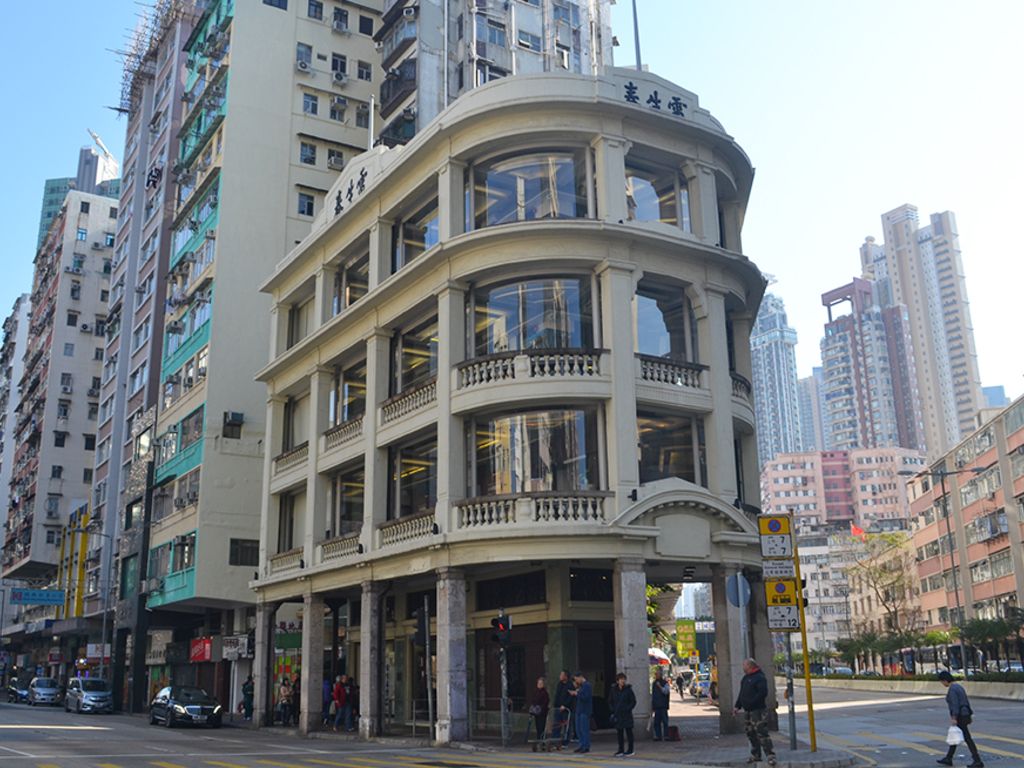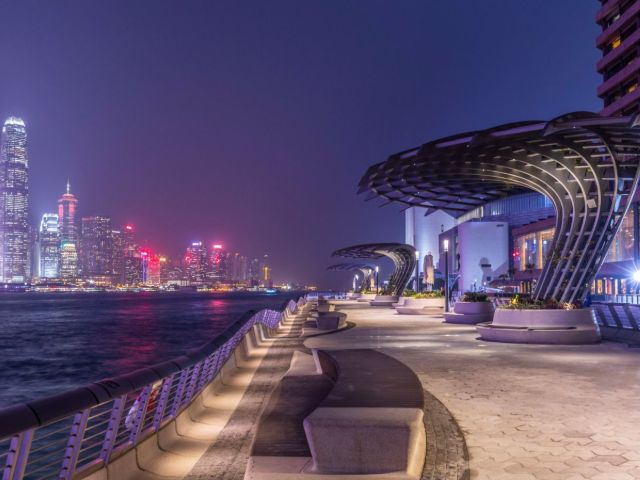Hong Kong had never seen anything like it. When Ocean Terminal opened in 1966, it was the first fully enclosed, air-conditioned shopping mall in Asia, and just the first development of the retail palace we now know as Harbour City
{{title}} Address {{address}} Website {{website}} More info . “Hong Kong is a city of malls,” says Stefan Al, a Dutch architect and the author of Mall City: Hong Kong’s Dreamworlds of Consumption, which documents the evolution of Hong Kong’s retail complexes.
In a way, the history goes back even further. As Hong Kong’s population boomed in the 1950s, developers built huge buildings with fanciful names: Mirador Mansions, Champagne Court
{{title}} Address {{address}} Website {{website}} More info , Chungking Mansions
{{title}} Address {{address}} Website {{website}} More info . Upstairs were apartments; downstairs, shopping arcades. Far from polished, they have always provided a haven for independent, family-owned businesses, and they serve as interesting counterpoints to Hong Kong’s flashy shopping centres.
Today, these malls and mansions represent the full spectrum of Hong Kong’s experience, from grit to glitz, with plenty of fascinating products and delicious food in between. Of all the city’s districts, it’s Yau Tsim Mong that offers the densest concentration of these varying shopping havens. As you make your way from the Star Ferry
{{title}} Address {{address}} Website {{website}} More info to Mong Kok, you can hop from mall to mansion, each one different from the last. It’s more than retail therapy — it’s a cultural experience.
Your journey through malls and mansions
You can't miss the original. Today, Harbour City spans two million square feet, and it takes at least 15 minutes to walk from one end to the other. You can browse through 450 shops, grab a bite at 60 restaurants or catch a movie at the cinema. You don’t even have to spend any money to enjoy the place: Harbour Terminal recently unveiled a new five-storey expansion with public observation decks that offer an unparalleled view of the harbour. With an open view to the west, it’s one of the best spots to watch the sunset in Hong Kong.
Walk west under the enormous camphor trees of Haiphong Road and you’ll discover a new generation of malls that have opened in more recent years. In most other cities, shopping malls sprawl over a huge amount of land, but in space-deprived Hong Kong, malls go up. The One
{{title}} Address {{address}} Website {{website}} More info rises 29 storeys, with shops and restaurants including fine dining with 270–degree harbour views on levels 17–21. Not far away, iSQUARE
{{title}} Address {{address}} Website {{website}} More info soars up 31 floors, with bars and restaurants on the upper levels — including some with terraces that offer sweeping views of the city.
Feet off the ground
The vertical thrust of these malls has led to some innovations. “[Their] tentacles reach deep into the ground to attach to subway systems, or bind to other malls with an ivy-like mesh of sky bridges,” writes Stefan Al in his book. That’s certainly true of Langham Place
{{title}} Address {{address}} Website {{website}} More info , which has become a centre of gravity in the busy shopping district of Mong Kok. If you venture four storeys up, you’ll discover a huge glass atrium filled with cafes, which is traversed by a dizzying 83-metre-long 'expresscalator' that takes you up a further five storeys. From there, you can explore The Spiral, a curving arcade that stretches from the ninth floor up to the 12th.
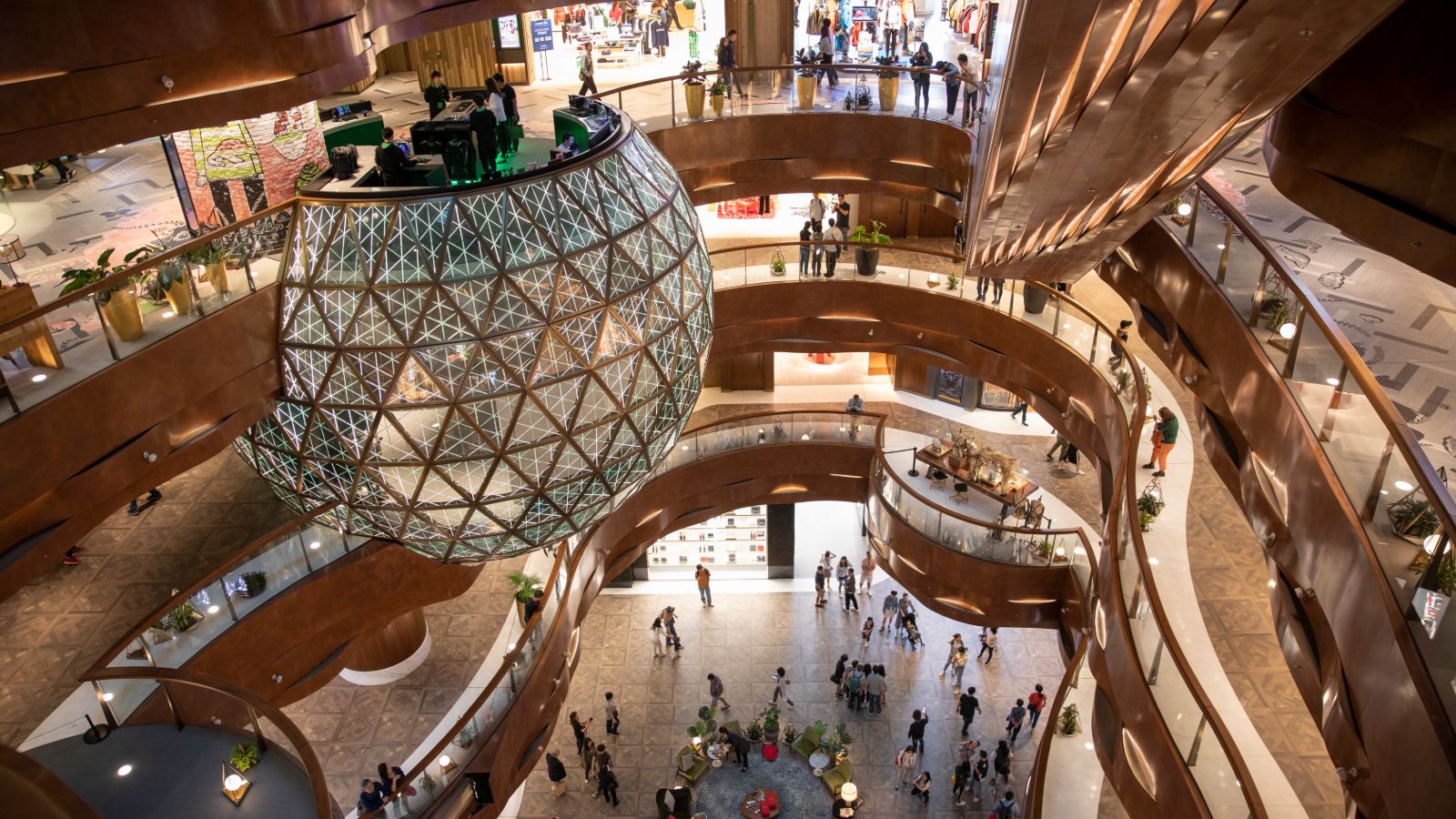
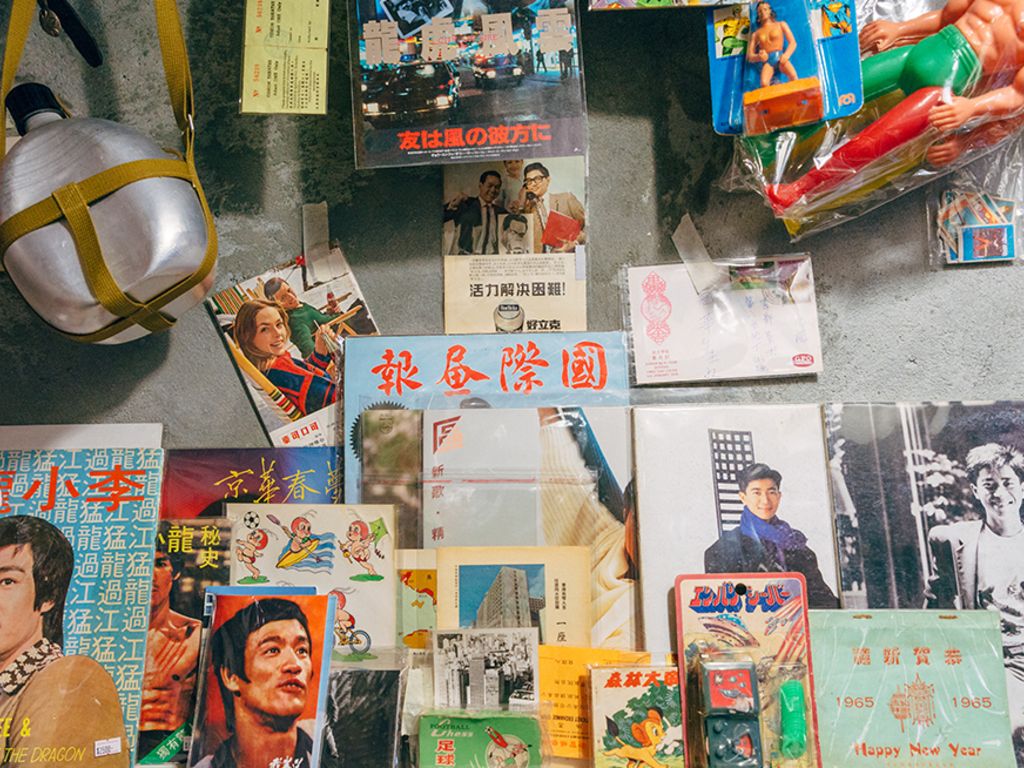
Niche collections
Malls have innovated in other ways, too. The dazzling K11 MUSEA
{{title}} Address {{address}} Website {{website}} More info raises the bar with its megawatt mix of upscale retail, destination dining and museum-worthy art collection, all housed within a striking, architectural space on Victoria Dockside. Sibling K11 Art Mall
{{title}} Address {{address}} Website {{website}} More info in Tsim Sha Tsui also includes an art space that hosts regular cultural events and art exhibitions. Other malls have adopted a theme, whether deliberately or by accident. The Forest
{{title}} Address {{address}} Website {{website}} More info in Mong Kok is dedicated to sportswear and running shoes. In's Point
{{title}} Address {{address}} Website {{website}} More info is the place to discover vintage collectibles. Argyle Centre
{{title}} Address {{address}} Website {{website}} More info is where youngsters head to keep up with the latest street-fashion trends.
Dive into mysterious mansions
And then there are the mansions and their treasure troves of eclectic small businesses and colourful, sometimes mysterious tenants and customers. Tsim Sha Tsui has an especially strong concentration, and you don’t need to walk far before coming across one of these shopping arcades. In some cases, they provide a convenient link between two places, like Daily House, which connects tree-lined Haiphong Road with the bars and restaurants of Ashley Road.
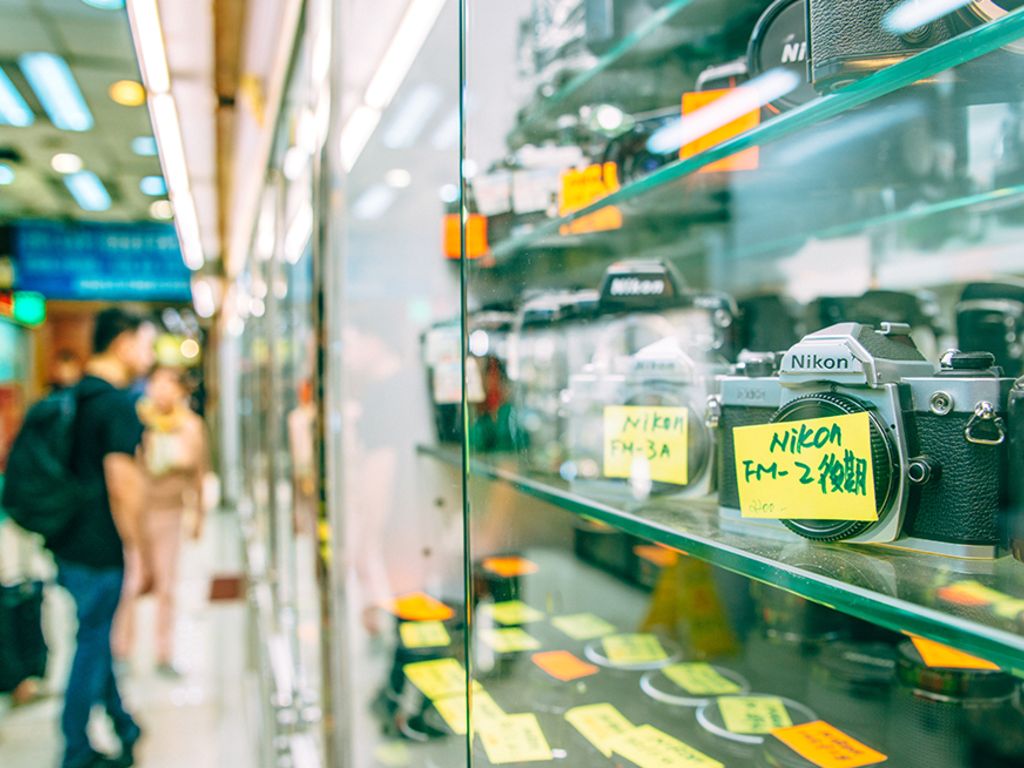
Expect the unexpected
Others are destinations in and of themselves. Champagne Court is known for its vintage camera shops. Thanks to its many guesthouses Chungking Mansions contains the world in a single building, with ground-floor snack bars that serve some of the best chai and samosas in town. And if you happen to stumble into the shopping arcade of Wing Lee Building
{{title}} Address {{address}} Website {{website}} More info on Kimberley Road, you’ll come across Dol Dam Gil, a long-standing Korean restaurant with an unassuming ground floor and an unexpected leafy terrace upstairs. It’s a surprise, but then again, Hong Kong’s malls and mansions are full of those.
Love to shop? Check out the list of Hong Kong’s major shopping malls.




